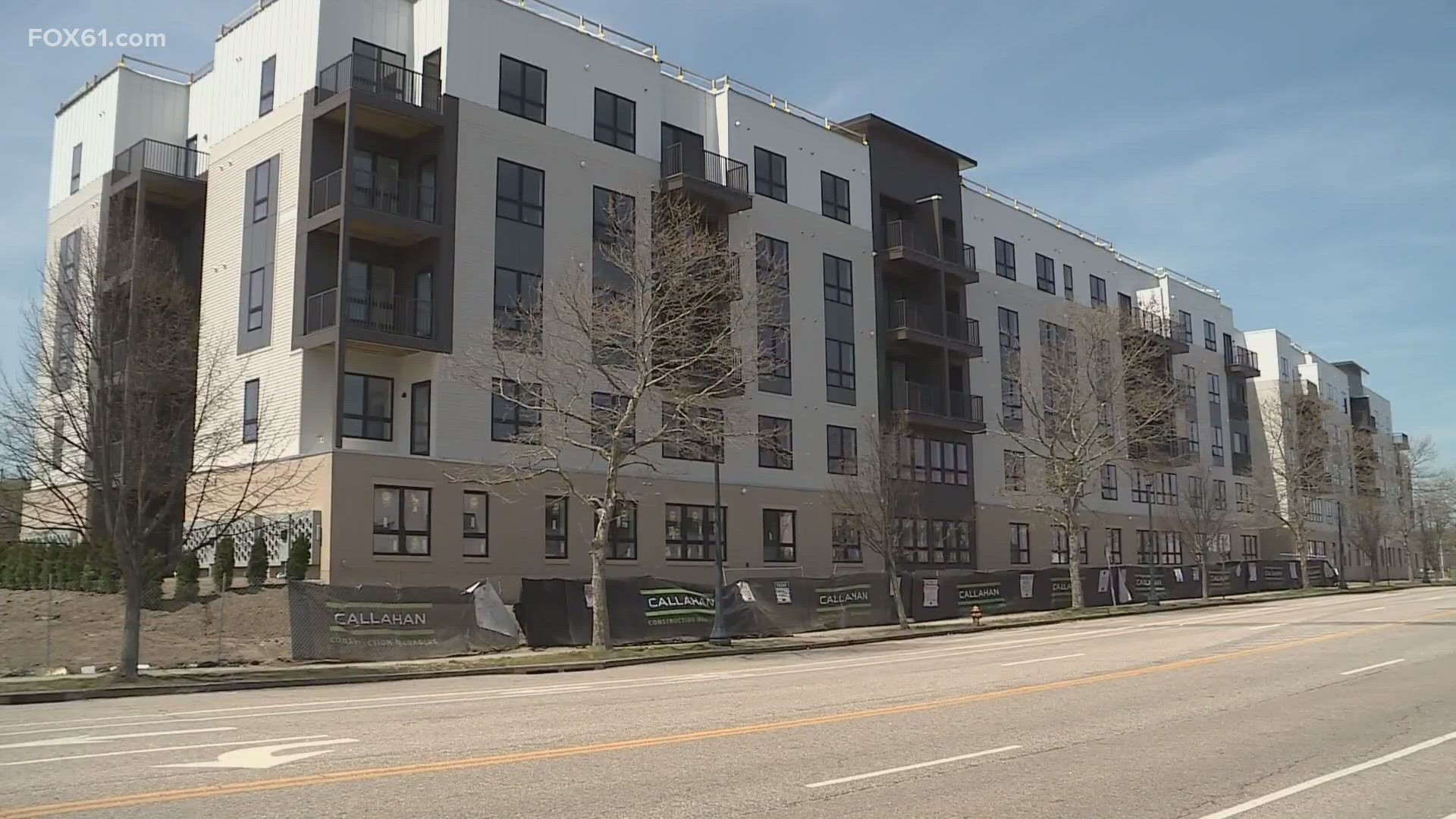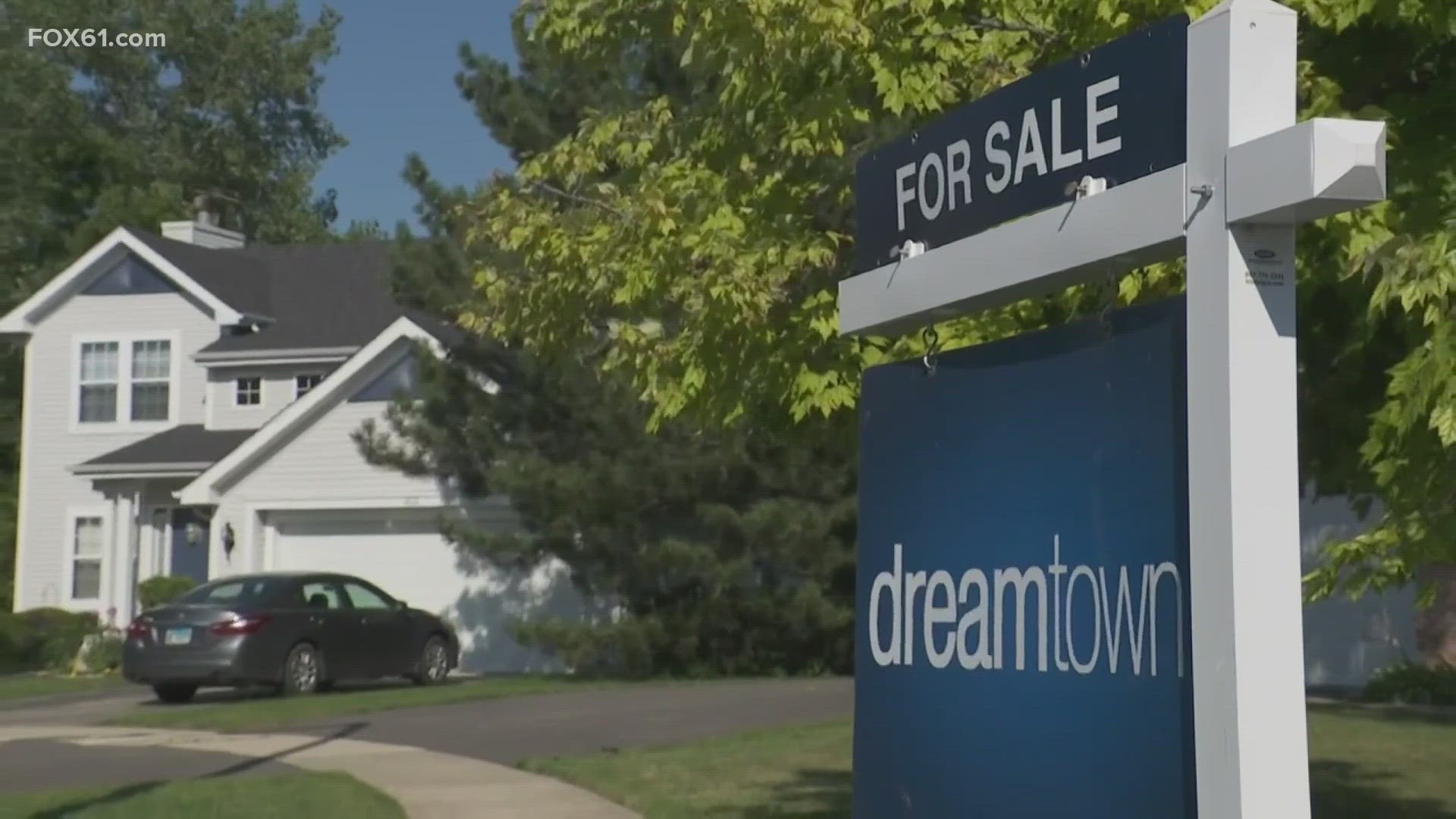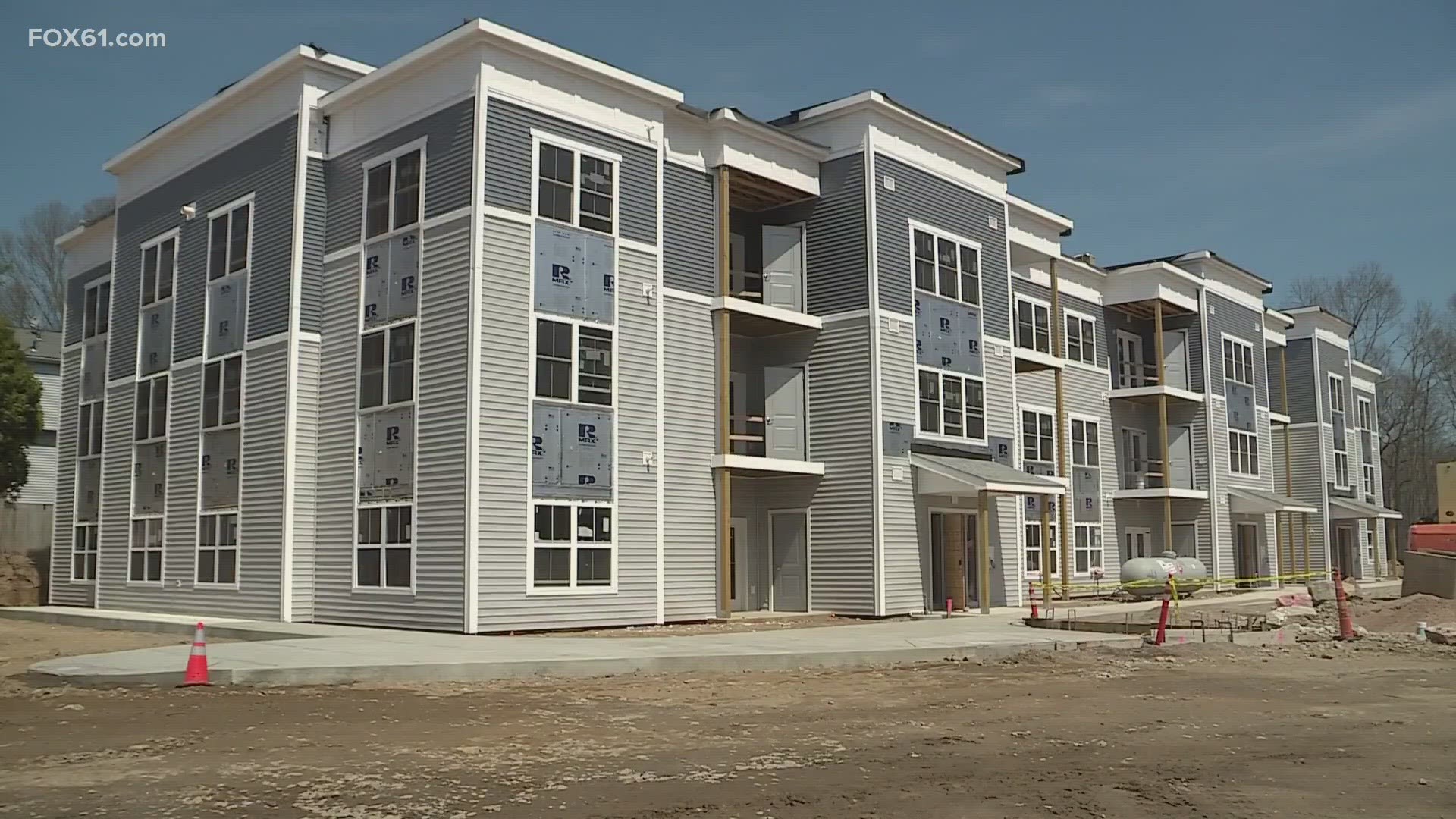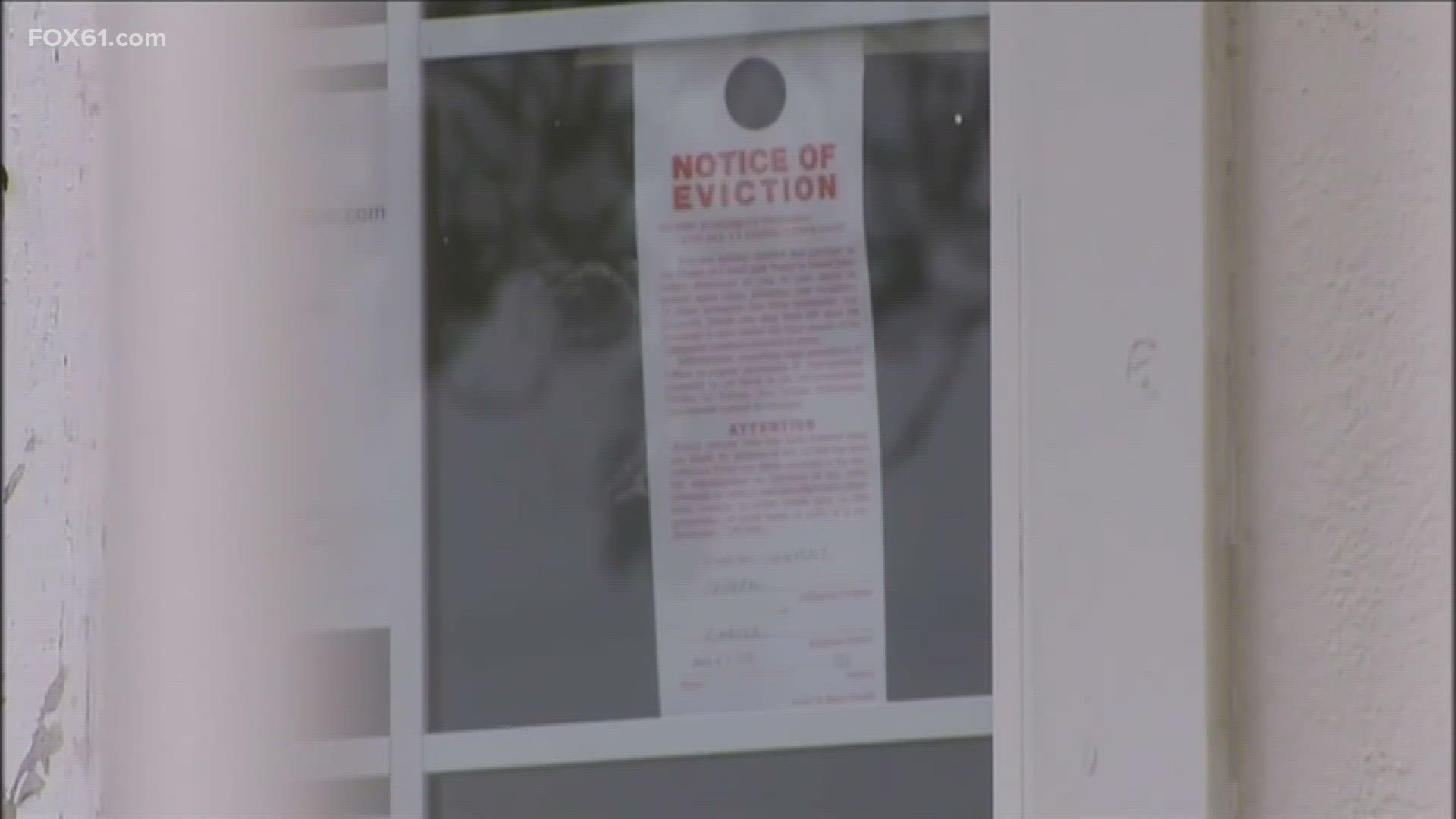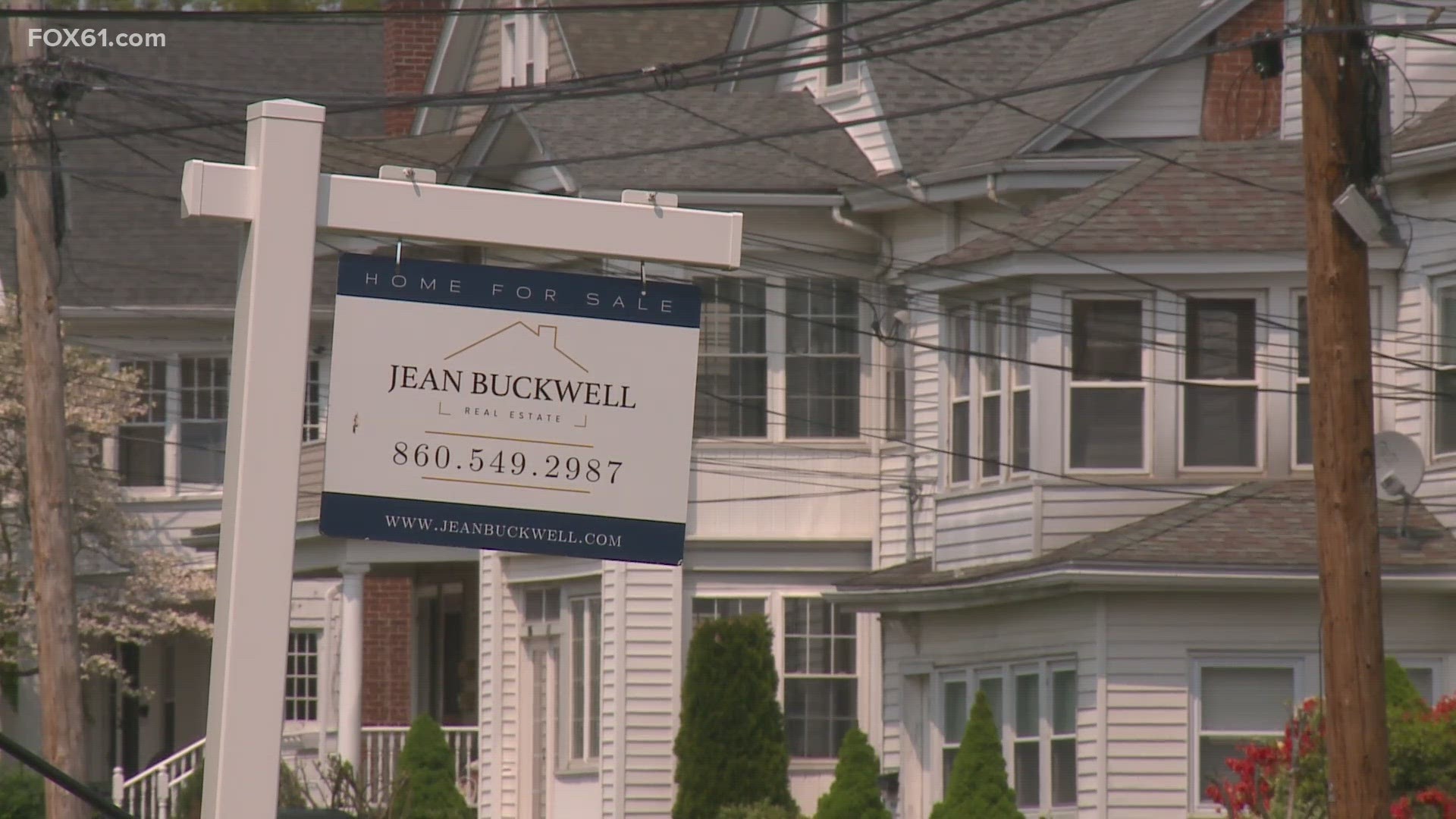A look at Connecticut's housing crisis and what's being done about it
Addressing the rise in housing costs and rent in Connecticut and what it's being done about it.
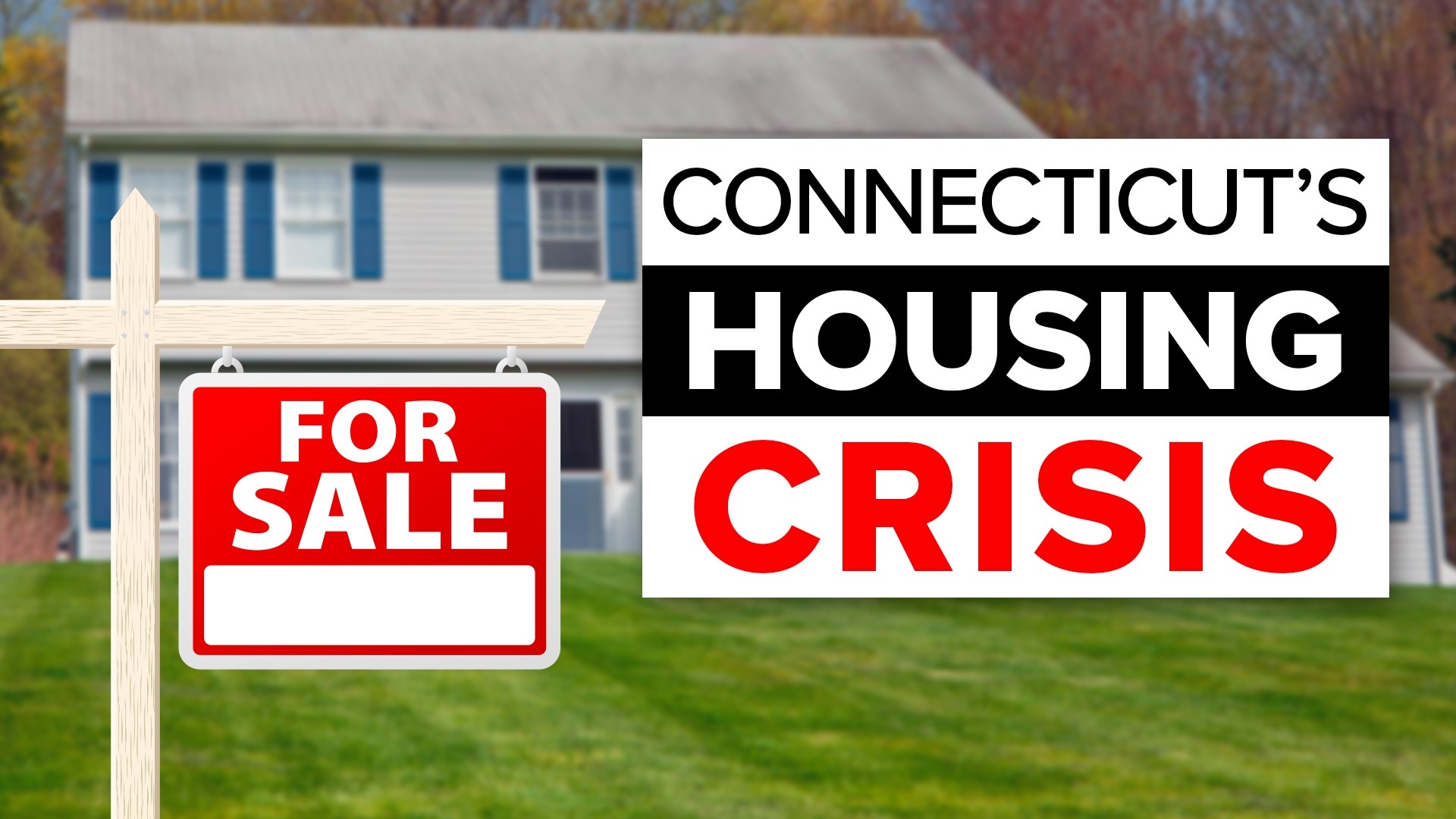
The Big Picture Lawmakers look for ways to ease the squeeze on a home buyer's budget in a costly market
Like prices on everything these days, the cost of housing is going up radically.
Our southern piece of New England is known for its fall foliage, good pizza, and charming shoreline communities, but those seeking a place to call home may say Connecticut should be known for high rents and sky-high home prices.
The expense has captured the attention of local and state leaders who are now looking for ways to help ease the squeeze on a home buyer's budget.
The Connecticut Department of Housing Commissioner Seila Mosquera-Bruno said this is nothing new.
“Lack of affordable housing has been an issue for a long time; 20 years ago, I started in the field, and there was a need for affordable housing even then,” Mosquera-Bruno said.
New Haven Mayor Justin Elicker tells us that the state's largest cities – Hartford, New Haven, and Bridgeport – are all facing a similar and simple problem: Too little supply, too high a demand.
“Right now, because the vacancy rate is so low, it means that all the housing prices are up because there are not a lot of units available,” Elicker said.
But just how costly is Connecticut? Let’s look at the averages according to Zillow and RentCafe:
- In Bridgeport, those renting a basic one-bedroom apartment face an average monthly payment of $1,367, while the buyers see an average cost of $281,000 for a starter single-family home.
- Hopping over to New Haven, the same sort of apartment goes for $2,051 per month on average, and home buyers see median costs of around $259,000.
- Up north to Hartford, average rents are at $1,400 per month, and home buyers are looking at $145,000 as an average home price.
Compared to other states, Connecticut renters are paying around $150 more per month for an apartment in these three cities and across the state.
Those falling into the home-buying side of things could end up paying up to $150,000 less in some cases in these three cities.
Mosquera-Bruno says the above-average rents are an issue Gov. Ned Lamont’s administration is taking on.
“We started four years ago; we finished in the first term with 6,800 new units and $500 million in federal and state resources,” Mosquera-Bruno explained. “That brought in about $3 billion in development activities that help the economic engine of Connecticut.”
She said the goal is to increase the number of homes and apartments available and the affordable percentage, which is not an overnight process.
“We have a lot of work in front of us, we have done a lot, but we need to do more,” Mosquera-Bruno said.
The State of Real Estate Some people ask if they will ever afford a home
To buy or not to buy? That’s the question many people face as they look at the possibility of owning their own home, but in Connecticut, owning a home is easier said than done.
Owning a home is usually seen as a sign of success; for many years, it was even deemed a pinnacle of the American Dream, but some people are now asking if they will ever be able to afford a house, especially in a state with so few homes on the market.
Paul Mizia and Meghan Kelly were living in Boston in March 2020 when the COVID-19 pandemic broke out. They moved to Connecticut to stay with Kelly's parents for a few weeks. Not surprisingly, those weeks turned into months, which turned into years.
The couple eventually started looking for their own home in the Constitution State, never imagining how long the process would take.
“We have put in offers on five or six; we have toured 20 and driven past probably 100,” the couple said.
A sad story that’s not surprising to local realtor Lisa Bowman. She said over the past five years, the state of real estate can be summed up in two ways: long timetables and lots of disappointment.
“You could call me, and I could show you 30 homes, or even 15 homes, and you could find something within a month, now, sometimes it's months or years for finding a house,” Bowman said.
She said this is due to high demand and low inventory of homes in Connecticut, which causes a hypercompetitive market for the few homes that are for sale.
But what does that mean for your dream home?
“It could go five, ten, twenty, forty, fifty thousand dollars over asking price,” Bowman said.
Mizia and Kelly said that’s what’s happening to them. They are getting beat out on multiple offers; so much rejection is taking an emotional toll.
“It’s hard because when you walk through a house, you envision what you will do to it and you spend time thinking, is this where I like to live, how do I see it looking, what plans we have,” she said. “Then you put in an offer, and it’s not accepted, so it’s hard because you don’t want an emotional attachment, but you have to be attached to buy the house.”
But after two years, the couple got their happy ending.
“There is only like three houses a year that go on sale so the fact we got one I feel like we won the lottery in that situation,” Kelly said.
If you have found yourself in their shoes, there may be some relief in the price range coming your way. Experts like mortgage lender Donald Valentas said a market cooldown is coming.
“It’s been a rollercoaster for the past year; from what we are hearing, rates should be trending down over the next six to twelve months,” Valentas said.
Keep in mind the competition will still be elevated; with lower rates comes even more people buying, meaning the house may be more affordable, but the demand to get it will certainly be higher.
Bowman said the best thing a potential home buyer can be is patient.
“People have to expand searches to other towns and look at their wants versus needs,” Bowman said.
Radical Rent Prices Tenants say they have to make tough cutbacks to afford rent
For singles, small families, and young professionals, renting an apartment is the option that just makes sense; but with rents going nowhere but up, many people say they are having to make some tough cutbacks just to afford a rental roof.
Imagine this: You just snagged a new job in one of Connecticut’s biggest cities, Hartford, Bridgeport, or New Haven, now it’s time to find a place to live, but that is proving easier said than done.
This is exactly the situation newly graduated Ichchha Pradhan ended up in.
“It was stressful, I kept having to push my start date,” Pradhan said. “I wanted to move here, get settled, then start my job.”
Pradhan said she had job offers in cities up and down the East Coast but chose Hartford. She tells us it was discouraging to search for limited apartment listings with unreasonable prices.
“I was looking for a one-bedroom, studio wouldn’t work for me I like having my space, but I realized that wasn’t a viable option. Everything was above $1,500 dollars and I didn’t want to put away half my monthly paycheck on that,” Pradhan said.
This is an issue local leaders like New Haven Mayor Justin Elicker are tackling, pushing to have the supply of apartments meet the demand, and having them priced within an affordable range.
“We have over the past three years brought over 900 new affordable units online, some deeply affordable, and we have almost 500 in the pipeline for the foreseeable future,” Elicker said.
State leaders see housing as a Connecticut problem, too. Connecticut Housing Commissioner Seila Mosquera-Bruno said they are trying to work with companies to bring more housing projects online as more people move our way.
“The governor put in this budget has an emphasis that housing is important, affordable rents are important, we need to come together and build more housing,” Mosquera-Bruno said.
Elicker tells us it’s a problem that has been slowly building for many years.
“This is something cities around the nation are dealing with,” Elicker said. “Housing prices are just skyrocketing, and Connecticut is no different.”
While steps are already being taken to fix it, Elicker said in New Haven, they are also laying a foundation for the future.
“We worked hard to push the limits on that to make sure we see the development, but also ensure there was a higher percentage of units required and a lower percentage of area median income for the eligibility of those units,” Elicker said. “The reality is the classic definition of 'affordable' isn’t always the same for everyone in the city and we need to make sure there are tiers of affordability.”
When we asked some state and local leaders about the idea of a “rent cap”, a concept thrown around in many larger cities, they said it’s something that is worth exploring, but tell me it’s often a deal-breaker for development companies who say they don’t want those restrictions.
Local leaders from cities across Connecticut tell us they are working on solutions as well, stating everyone deserves to have an affordable roof over their head and it’s part of their job to ensure that can happen.
Evictions Exceed Pre-pandemic Levels Evictions in Connecticut jumped from 19,000 in 2019 to nearly 23,000 in 2022
At 60 years old, Ezra Welch suddenly found himself in uncharted waters.
“I worked my whole life and I never expected to be sleeping in my car in the Walmart parking lot,” he said. “I’ve gone through a couple health scares, a couple job losses,” Welch said. “The last couple years have been very challenging,” he said.
He was evicted from his apartment and left with no place to live.
“There are no new places in Connecticut that will let you in the door unless you’ve got like 5,000 [dollars] or so,” Welch said. “I went to seven different hotels none of them would accept the vouchers. I went to three different YMCAs, they all had no vacancies."
Forced to sink or swim, he was able to find temporary housing at a hotel. But what the future holds is still unknown.
In Connecticut. where evictions are still exceeding pre-pandemic levels, Welch is not alone.
According to the CT Fair Housing Center, 22,749 evictions were filed in 2022, a jump from 2019 when there were 19,104.
So far, this year those numbers are closer to 2019’s but still higher.
“The pandemic really did exacerbate what was already a sad trend,” said Joseph Osborne, head of the Windham Mills Tenant Union. He said the end of the eviction moratorium in 2021 was the beginning of the wave of evictions.
“A lot of tenants were misinformed in regards to their responsibility as far as rent. People thought that because there was a moratorium that they didn’t owe rent. So, they stopped paying rent,” Osborne said.
Now, rising rental costs are adding to the problem.
“That is a crisis. And that is happening everywhere. Some of the numbers have been astounding where I’ve heard of people’s rents going up over $1,000,” Osborne said.
From 2022 to 2023, the fair market rent for a one-bedroom apartment went up 21% in the Bridgeport area, 15% in the Hartford area and 13% in the New Haven area.
Landlords argue that’s because of rising costs everywhere else, from electricity to insurance.
“Most landlords are going to try to help people to do a degree but they can only wait so long you know they have expenses that keep piling up too,” said John Souza, president of the CT Coalition of Property Owners.
Souza said the eviction process can be a lengthy and expensive one that landlords often try to avoid.
“Eviction court is the only way to resolve the differences between the landlord, there’s no other system,” Souza said. “It costs a fortune for the landlord in lost rent. Most of the time unfortunately you have to hire a lawyer so it adds to the cost of the system too by having to have lawyers involved,” he said.
For tenants, there is help. The state recently rolled out a Right to Counsel program that offers free legal representation for people facing eviction.
Something that can come crashing down on anyone.
“You’re only one health scare away, you’re only one car crash away, you’re only one your spouse or somebody gets sick and passes away COVID, who knows,” Welch said.
Outside The Box Solutions What's already being done to help tenants and homeowners, and what advocates are pushing for
A lack of affordable housing, rising rental costs, evictions exceeding pre-pandemic levels, and a housing market that just doesn’t seem to be getting better.
“The fact is, Connecticut is in a housing crisis. There’s no other way to talk about this,” said Evonne Klein, CEO, of the CT Coalition to End Homelessness. “We’ve got this perfect storm that has created this housing crisis,” she said.
But what exactly is being done about it?
The state of Connecticut has recently rolled out financial assistance programs for both homeowners and renters.
For those looking to buy their first home, the Time to Own program offers forgivable down payment assistance. It reopened last month with an additional $20 million in funding.
For those struggling to pay their mortgage there is also help.
“Things like the Emergency Mortgage Assistance program, which can offer a low-interest loan for arrearage that's built up as a result of economic hardship,” said Theresa Dudek, a staff attorney, with the CT Fair Housing Center.
Renters in need of assistance can apply for the Eviction Prevention Fund created this year, in which they could qualify for up to $15,000 to cover the rent they owe.
In an effort to keep costs under control, the state recently expanded the number of towns and cities that must create Fair Rent Commissions, which can determine if a landlord is charging an excessive amount.
“We want it to be so everyone can afford it, but there’s got to be more of it. And that’s where really the crux of the problem is in Connecticut,” said John Souza, president of the CT Coalition of Property Owners.
Connecticut has a shortage of more than 86,000 affordable housing units. The best way to address it depends on who you ask.
“We can’t build our way out of the housing crisis by staying with single-family houses further out from cities,” said Pete Harrison, director of Desegregate CT.
For the coalition, the answer lies in changes to local land use policies to allow for more housing.
“So as we’re building more homes, more types of homes, we really have to be smart about where we do that, and we think it’s really smart to do it in places that already have infrastructure like public transportation,” Harrison said.
Groups who oppose changes to local zoning like CT169 Strong argue that instead, the focus should be on reforming the state’s housing voucher system. They said, restrictions on where they can be used create obstacles.
“We want to stay away from just high-density market value rental development. Build and lease is not going to create opportunity,” said Maria Weingarten, co-founder, of CT169 Strong. “We’re hoping that it’ll be a much better opportunity. If we’re able to get more funding that is spread a little bit further out to other communities not just to the largest cities.”
In a state that’s seen a 39% increase in homelessness since pre-pandemic times, perhaps the answer would require thinking outside of the box.
In New York City, for example, there’s a plan to convert empty office buildings into housing. Advocates said it’s been done in Connecticut before.
“This is something that’s been happening all along but I think we’ll see more of it,” Klein said.
In Nashville, shipping containers have been turned into apartments, priced 20-25% below typical rents.
An open mind could go a long way because many say the status quo isn’t cutting it.
“Being very open as a state and as municipalities about the kinds of housing that people need in 2023 and will need in the future,” Klein said.
Brooke Griffin is a reporter for FOX61 News. She can be reached at bgriffin@fox61.com. Follow her on Facebook, Twitter, and Instagram.
Gaby Molina is a reporter and anchor at FOX61 News. She can be reached at mmolina@fox61.com. Follow her on Facebook, Twitter and Instagram.
---
Have a story idea or something on your mind you want to share? We want to hear from you! Email us at newstips@fox61.com
---
HERE ARE MORE WAYS TO GET FOX61 NEWS
Download the FOX61 News APP
iTunes: Click here to download
Google Play: Click here to download
Stream Live on ROKU: Add the channel from the ROKU store or by searching FOX61.
Steam Live on FIRE TV: Search ‘FOX61’ and click ‘Get’ to download.


